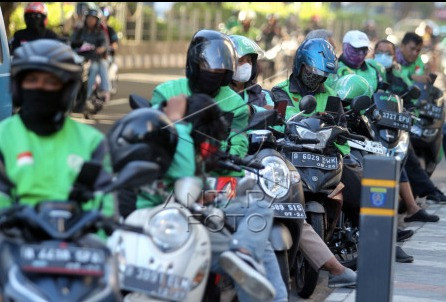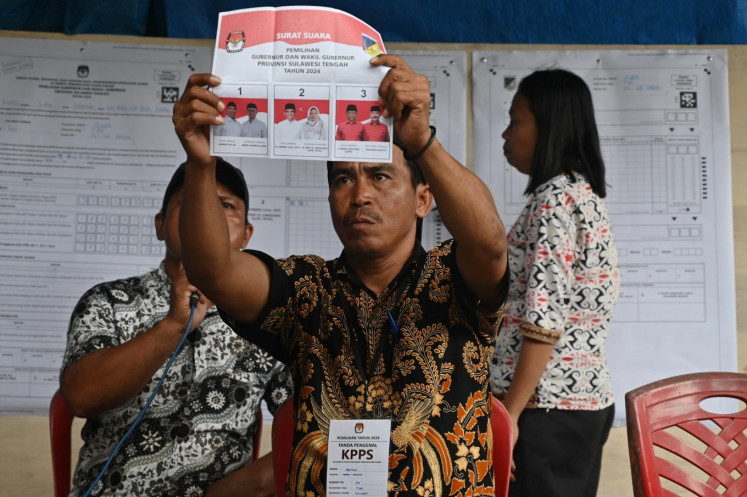Popular Reads
Top Results
Can't find what you're looking for?
View all search resultsPopular Reads
Top Results
Can't find what you're looking for?
View all search resultsEDITORIAL: The unreliability of rice data
The problem is there have long been great doubts about the accuracy of the production data provided by the Agriculture Ministry and the Central Statistics Agency (BPS).
Change text size
Gift Premium Articles
to Anyone
E
very time a bout of price hikes hits the rice market, as it has been over the last few months, the politically sensitive issue about the need for imports again raises its ugly head. After a series of meetings chaired by the chief economics minister, the government finally decided recently to import 500,000 tons, or just 1.5 percent of the estimated domestic consumption of 33 million tons, to help press down the rice price, which affects the vast majority of the population and weighs heavily on the inflation rate.
But Agriculture Minister Amran Sulaiman, who seemed to consider rice imports a threat to his portfolio in the Cabinet, as well as a number of politicians, strongly protested the import policy, arguing that domestic supplies are actually adequate and imports would hurt the farmers.
The problem is there have long been great doubts about the accuracy of the production data provided by the Agriculture Ministry and the Central Statistics Agency (BPS). There were even suspicions the ministry tended to inflate production data to show off its success, especially because President Joko “Jokowi” Widodo himself has made rice self-sufficiency one of the goals of his administration.
We now learn, though, that the government has now realized that the main controversy about rice imports so far has been generated by inaccurate production data. The limited availability and quality of data on the production and consumption of such a strategic commodity has reduced the ability of the government, analysts and researchers to understand the national rice supply and demand.
BPS chief Kecuk Suhariyanto confirmed on Monday that the present data collection, which is based on eyeball estimates of paddy crops in random area sampling in major-producing provinces, would be replaced by a satelittle-mapping method to gather more accurate data.
Another problem may be that the monitoring of domestic stock data at main warehouses and major distribution points for the early price monitoring system also has been utterly inadequate. As long as an effective early warning system and reliable real-time information about stocks, the flow of rice across the country and prices are not available, debates about rice production and consumption tend to beat around the bush.
But the government and many politicians still need to correct misperceptions that food security should mean rice self-sufficiency. Given the acute lack of irrigation outside Java, a low rice yield and taking into account the needs of 260 million people, it is likely impossible for Indonesia to be self-sufficient in rice all the time.
In the long run, and in the absence of a new technology breakthrough or of any significant expansion in rice acreage outside Java, there seem to be few better alternative policies for the government but to step up food diversification programs.
In the meantime, rice imports should be allowed from time to time as a deterrent to speculative domestic trade and to meet domestic deficit in case of harvest failure. Official data has shown that more than 75 percent of rice growers are net rice consumers themselves.










